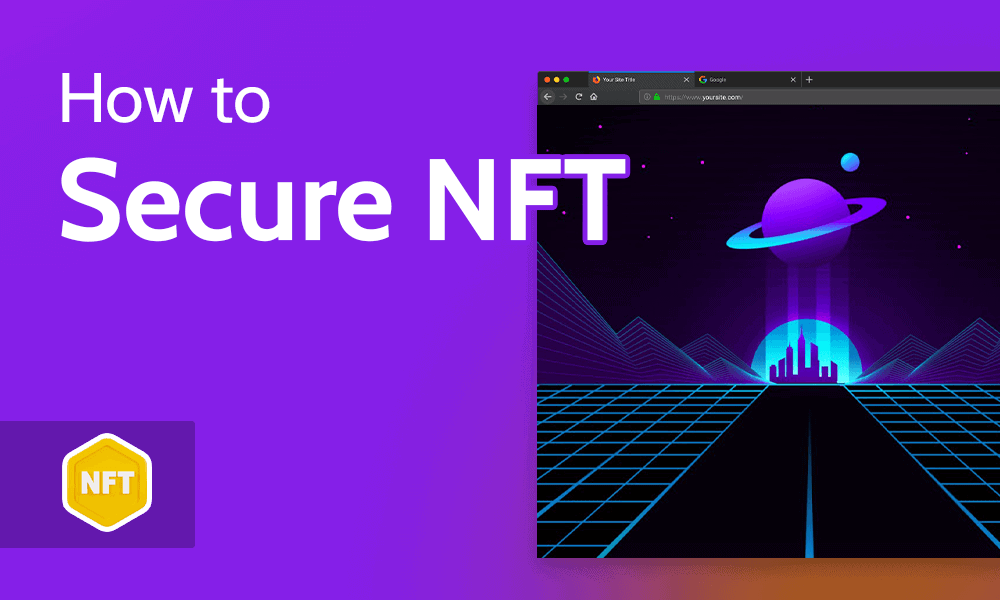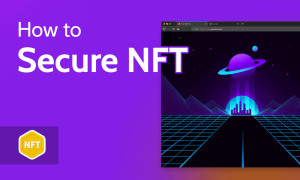Join Our Telegram channel to stay up to date on breaking news coverage
Crypto-related fraudulent activities have significantly risen year-to-year in the past few years. As criminals become more indiscriminate, anyone can fall victim to scams. However, there are a few tricks you can utilize to stay vigilant against any form of fraud. Below are some measures that might help you secure your crypto and NFTs from hacks and online scams:
1. Password
Setting a strong password is a viable way to protect your digital assets from scams. However, it’s advisable to avoid storing or saving any passwords online. Moreover, it would help if you used a unique password for each account or wallet. Combining lowercase letters, uppercase letters, numbers, and special characters is also recommended to create a strong and unbreakable password.
2. Links And Direct Messages
Phishing links and direct messages are common tricks scammers, and hackers use to steal digital assets. Kevin Rose, the founder of Moonbirds NFT collection, is a recent perfect example of a scam victim. Earlier this year, Rose nearly lost $1 million worth of NFTs after clicking a fraudulent phishing link.
I was just hacked, stay tuned for details – please avoid buying any squiggles until we get them flagged (just lost 25) + a few other NFTs (an autoglyph) …
— Kevin Rose (@kevinrose) January 25, 2023
In that context, you should avoid any links or message files from an anonymous sender. In most cases, scammers and hackers use bookmarks from common sites like Blur, Os, and more. It will help if you treat all unknown links and texts as scams.
Nonetheless, if you need to access the webpage that a link directs you to, you should load it using guest mode or incognito mode for Google Chrome. Moreover, you can explore the sent links with a browser that has no wallets connected to it.
3. Twitter Security And Email
Social media platforms, such as Twitter, Facebook and Instagram, have recently become camping sites for scammers and hackers. In that context, setting a 2FA “Two Factors Authentication” to your social media accounts like Twitter, Facebook, and email is highly advisable.
Earlier this month, scammers breached Yuga Labs New Boss “Daniel Alegre” Twitter account to promote fraudulent activity. At the time, several NFT investors claimed to have suffered some losses. Therefore, it’s recommended to read before connecting to any link. In many cases, any Twitter profile with comments turned off is a scam.
. @dalegre 's twitter is hacked, do not click anything. pic.twitter.com/Ai8vxjUr6H
— Garga.eth (Greg Solano) 🍌 (@CryptoGarga) May 2, 2023
4. Discord Security
In recent months, hackers tended to breach discord servers to promote fraudulent activities and scams. Last year, hackers breached Yuga Labs’ discord servers to promote phishing links. At the time, scammers stole more than $1 million worth of NFTs.
🚨BAYC & OtherSide discords got compromised‼️
Seems because Community Manager @BorisVagner got his account breached, which let the scammers execute their phishing attack. Over 145E in was stolen
Proper permissions could prevent this pic.twitter.com/lCl2DfZQ0W
— okHOTSHOT (@NFTherder) June 4, 2022
Therefore, avoiding answering direct messages from “mods” or “team members” from your discord is recommended. It’s also advisable to avoid doing over-the-counter trades. Instead, conduct transactions on NFT marketplaces like X2Y2, Blur, or Magic Eden.
5. Crypto Wallet Segregation
Segregating your wallets in different wallets for different purposes is another essential aspect of protecting your digital assets from potential scams. You can set up a cold wallet for your most valuable digital assets. This is your hardware wallet, where you store all your valuables offline.
As an NFT investor, you can store your digital assets in the hot wallet. In this case, this is your daily use wallet that connects to reputable platforms such as OS, Blur, OpenSea, and more. You should store low-value items and small amounts of crypto in this wallet, which you frequently use for buying, selling, and trading.
Lastly, crypto users should set up a ‘bunner wallet’ for high-risk interactions. It’s advisable not to store crypto and non-fungible tokens in this wallet. Keeping only small amounts of crypto for gas fees in the wallet and other minor utilities is recommended. Stay safe from scams at all times.
Related NFT News:
- Jacob Crypto Bury Shared Common Crypto Scams and How To Avoid Becoming A Victim
- Scammers Stole NFTs Worth Over $10M In March – NFT Thefts Fell By 30% From February
- Scammers Steal $15 Million in Crypto Through HitBTC Website Clone
Join Our Telegram channel to stay up to date on breaking news coverage


